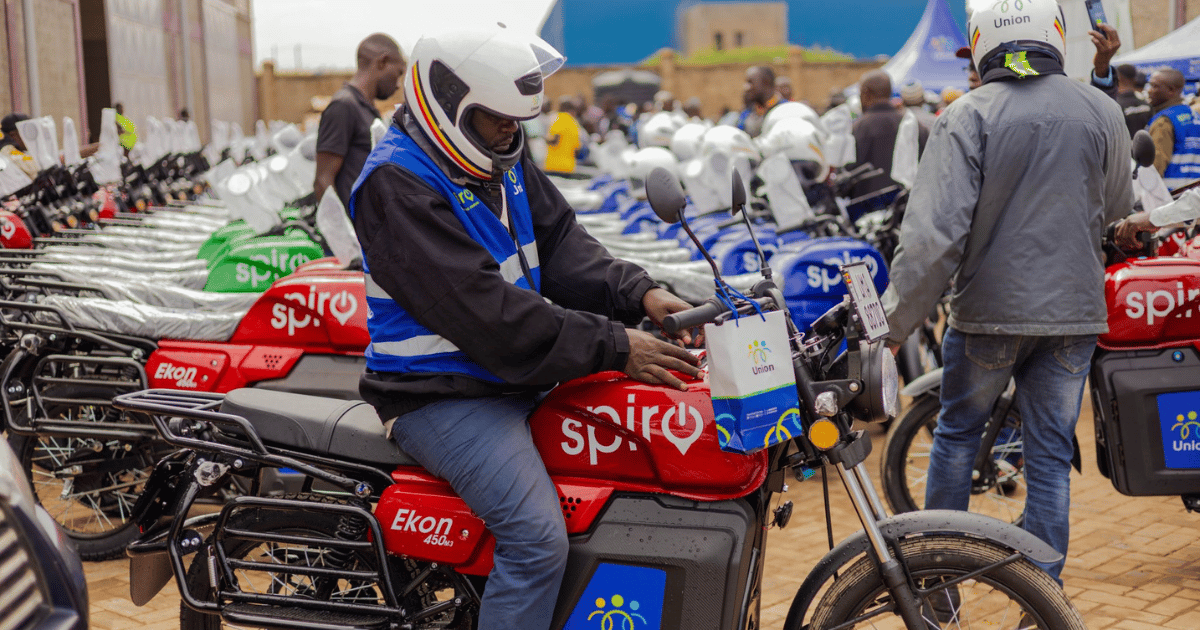- Mobility Rising
- Posts
- Taxi riders union launches 4,000 e-bikes in Uganda
Taxi riders union launches 4,000 e-bikes in Uganda

From the newsletter
More than 4,000 electric motorcycles are being disbursed to customers on credit in Uganda through a union of taxi operators. The Boda Boda Riders Cooperative Union is handing over the motorcycles which will be paid for in instalments. The motorcycle taxi operators will pay an initial deposit of UGX 100,000 ($28) plus UGX 70,000 ($19.5) weekly for two years.
There are more than 30 million motorcycle operators in Africa, but the majority are not organised in formal groups. The creation of formal bodies like cooperatives is enabling riders to negotiate better terms for the purchase of electric motorcycles on credit.
Selling electric motorcycles in bulk to groups like cooperatives can help create a network effect and help EV companies to generate valuable usage and performance data, helping them to improve technology, financing, and after-sales services.
More details
The Union is the umbrella body for motorcycle operators in Uganda. There are more than 1 million motorcycle riders in the East African country. The overwhelming majority use petrol motorcycles, which are mainly purchased using financing from asset financiers. However, according to the Union, these loans are very expensive.
“Before the Union’s involvement, we were spending heavily on loans because most partners were not supporting us—they only wanted to make huge profits. Riders could not save anything because they were paying so much. That’s why we used to say they give you a rabbit, and in return you give them a cow,” said the Union’s National Chairman Frank Mawejje.
The electric motorcycles were sourced from Spiro, which operates in eight African countries. Spiro entered the Ugandan market in 2024 and is building a local assembly plant with a capacity of 50,000 units annually. The company is however facing stiff competition from startups like Zembo and Gogo Electric, which have been in the local market for longer, and Zeno, which launched sales in Uganda this year.
Across Africa, motorcycle operators typically form informal and often voluntary associations that they use to identify each other. Electric motorcycle companies have been targeting these groups to fast-track sales. Often, they grant the operators tokens such as helmets, boots and other accessories as well as more flexible loan terms. This approach has helped increase electric motorcycle sales in markets like Kenya.
In East Africa, asset financiers like M-Kopa, 4G Capital, Watu Credit and Mogo are playing a pivotal role in enabling customers to afford electric motorcycles. The increased access to finance comes at a time when financiers are becoming more confident of giving loans for electric motorcycles. This, in addition to declining prices, is expected to significantly increase electric motorcycle sales in Africa.
Despite these major forward steps, infrastructure challenges, especially the lack of sufficient charging and battery swapping stations, continues to derail electric motorcycle sales. At the same time, charging and swapping companies have been raising prices, which has been a pain for motorists who have switched to electric motorcycles. This has led to increasing popularity of motorcycles that offer multi-modal charging, enabling users to swap their batteries or charge using either AC or DC charging.
Our take
Motorcycle operators in other African countries can adopt the Union model, giving them collective bargaining power and better access to credit. This could accelerate formalisation of the sector and drive bulk EV adoption.
Uganda is following in the footsteps of Kenya and becoming one of the continent’s most competitive electric motorcycle markets, attracting a growing number of companies. This could help reduce prices but also force the companies to innovate on financing and customer services.
Zeno’s motorcycles can be charged at home or its batteries swapped at the station. This model used by the company, which entered Uganda this year, could force infrastructure providers to rethink their pricing models or risk losing relevance if riders bypass them with home charging.